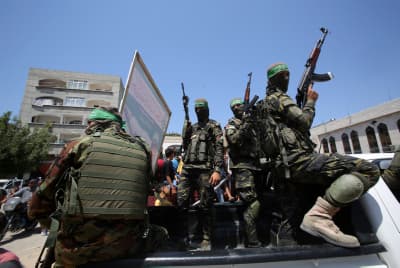IDF, Hamas, Gaza, Israel-Gaza War
New directive: IDF is not allowed to target Hamas police officers
Only members of the military wings of Hamas and Islamic Jihad can be targeted for elimination.

In a significant shift in Israel's military strategy, a new directive from the military prosecution has reportedly restricted the IDF's ability to target certain Hamas officials in Gaza. This development, reported by Channel 12 News, marks a notable change in the rules of engagement amidst the ongoing conflict.
According to the military prosecution's interpretation of international law, only members of the military wings of Hamas and Islamic Jihad can be targeted for elimination. This directive appears to exclude Hamas police officers and civilian officials, even if they are armed, unless there is clear evidence of their direct involvement in terrorist activities, as reported by Arutz Sheva.
The new guidelines stipulate that being a member of Hamas services, such as a mayor, district head, or senior official, does not automatically make an individual a legitimate target. The prosecution argues that targeted killing is a preventative measure, not a form of punishment, and therefore civilians who are not part of the combat force cannot be targeted as an act of revenge.
This interpretation of the laws of warfare has raised questions about the IDF's operational flexibility in Gaza. However, the IDF spokesperson maintains that the military continues to attack "government elements participating in Hamas terrorist activities" who are considered legitimate targets under international law.
The spokesperson also noted that during the war, the IDF has engaged armed individuals posing threats to its forces, including members of the Hamas police.
This development comes at a time when Israel is facing increasing international scrutiny over its military operations in Gaza. The new directive appears to be an attempt to align military actions more closely with international law, potentially in response to growing pressure for adherence to rules of engagement in urban warfare.
As the conflict continues, this change in policy could have significant implications for Israel's military strategy and its efforts to dismantle Hamas's infrastructure in Gaza. It also highlights the complex legal and ethical considerations at play in modern urban warfare, where the lines between combatants and civilians are often blurred.